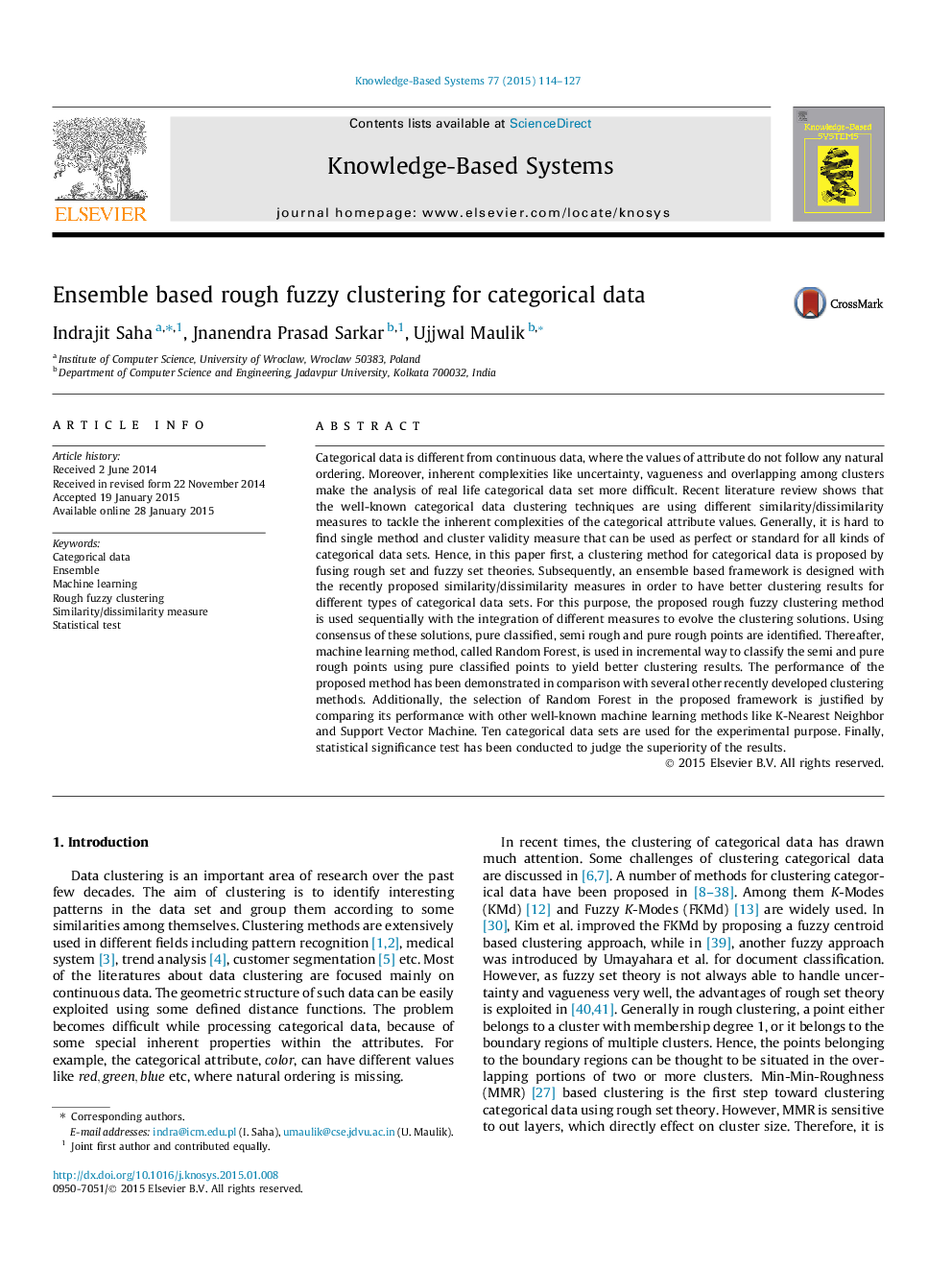| Article ID | Journal | Published Year | Pages | File Type |
|---|---|---|---|---|
| 404943 | Knowledge-Based Systems | 2015 | 14 Pages |
Categorical data is different from continuous data, where the values of attribute do not follow any natural ordering. Moreover, inherent complexities like uncertainty, vagueness and overlapping among clusters make the analysis of real life categorical data set more difficult. Recent literature review shows that the well-known categorical data clustering techniques are using different similarity/dissimilarity measures to tackle the inherent complexities of the categorical attribute values. Generally, it is hard to find single method and cluster validity measure that can be used as perfect or standard for all kinds of categorical data sets. Hence, in this paper first, a clustering method for categorical data is proposed by fusing rough set and fuzzy set theories. Subsequently, an ensemble based framework is designed with the recently proposed similarity/dissimilarity measures in order to have better clustering results for different types of categorical data sets. For this purpose, the proposed rough fuzzy clustering method is used sequentially with the integration of different measures to evolve the clustering solutions. Using consensus of these solutions, pure classified, semi rough and pure rough points are identified. Thereafter, machine learning method, called Random Forest, is used in incremental way to classify the semi and pure rough points using pure classified points to yield better clustering results. The performance of the proposed method has been demonstrated in comparison with several other recently developed clustering methods. Additionally, the selection of Random Forest in the proposed framework is justified by comparing its performance with other well-known machine learning methods like K-Nearest Neighbor and Support Vector Machine. Ten categorical data sets are used for the experimental purpose. Finally, statistical significance test has been conducted to judge the superiority of the results.
